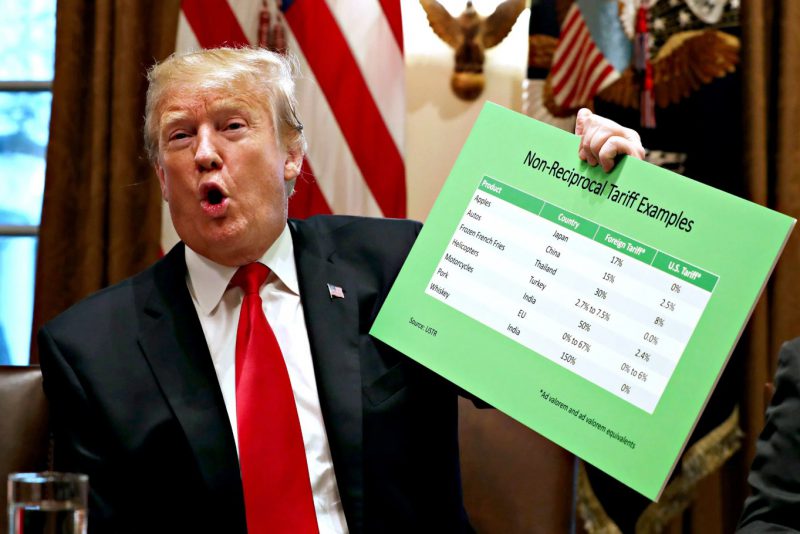Revenue from US Tariffs rose to new all-time highs in April, soaring 60% to $15 billion. US President Donald Trump instituted new tariffs on foreign nations earlier this month, including a 10% baseline tariff for most countries and a 25% tariff on steel and aluminum imports. While some countries had their tariffs paused, others, like China, saw tariffs increase by as much as 100%.
🇺🇸 US tariff revenue rises 60% to $15 billion in April, a new all-time high. pic.twitter.com/PRQBQOoQ0W
— Watcher.Guru (@WatcherGuru) April 24, 2025
Revenue from customs duties spiked more than 60% in April as the first levies took effect, bringing in at least $15 billion, according to Treasury data released Wednesday. The numbers largely do not account for the 10% universal tariffs that Trump announced on April 2, meaning collections in May could climb further. Some or much of the cost of those tariffs is likely to be paid by everyday Americans as the increase is passed on to them through raised prices. Hence, many US citizens and lawmakers are concerned about what effect the tariffs will have long term on various products.
Several industries were affected by Trump’s US tariff policy, with the US stock market nearly crashing. Industries like automotive and tech were heavily impacted by the opening tariffs, as companies relied heavily on foreign exports for product development. Despite tariffs getting paused, the overall stock market and economy lie in a state of uncertainty due to the looming potential of tariffs resuming.
US Economy Still In Danger Despite Tariffs
Economists also worry about the future due to the variable changes in Trump’s tariff plan. All the price moves: the sudden stock surges and falls, are being driven by White House policies that seem to shift constantly and with little forewarning. Thus, economists find it difficult to predict where stocks, bonds, or the US dollar will go next. “This is very frustrating,” said Jay Woods, chief global strategist at Freedom Capital Markets. “Everyday is just uncertainty, uncertainty, uncertainty. We expect one thing to happen, and then another thing happens.” While strong US tariff revenue may sound good, the consequences appear to run deeper.
On the other hand, Donald Trump recently said that the tariff policy is going well, and worries are dramatic. The president stated that the US is exploring trade deals with countries affected by the tariffs, including China and members of the European Union. There are plenty of experts who suggest the opposite. In fact, twelve US states have come together to challenge what they’re describing as unlawful tariff policies that are currently causing economic turmoil. The states are suing Trump specifically over his use of the International Emergency Economic Powers Act to impose tariffs, which they believe and argue exceed presidential authority.





